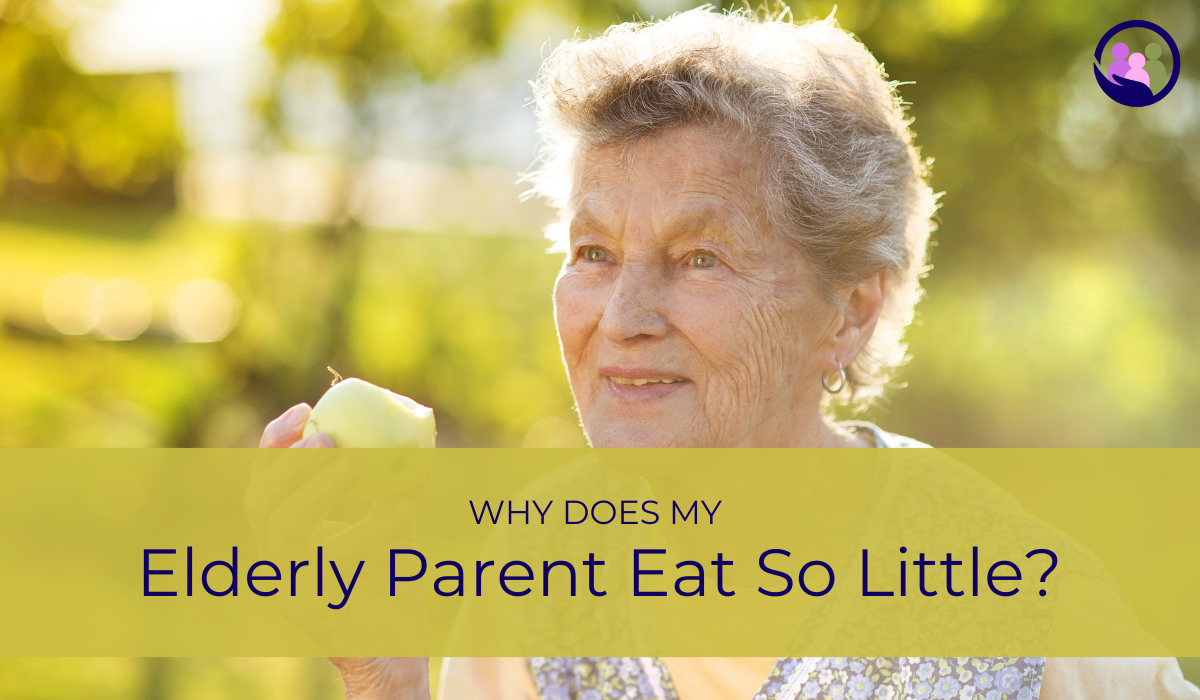As our loved ones grow older, we may notice changes in their eating habits, including a reduced appetite. You might wonder, "Why does my elderly parent eat so little?" There are several reasons for this, and understanding them can help you provide better support and ensure your aging family member stays healthy and well-nourished.
Changes in Metabolism
One of the natural changes that occur with age is a decrease in metabolism. As we get older, our bodies tend to burn fewer calories and require less energy. This reduced metabolic rate can lead to a decreased appetite, making elderly individuals feel less hungry than they used to.
Medications and Health Conditions
Many elderly individuals are managing chronic health conditions and take various medications. Some medications can affect a person's sense of taste and smell, making food less appealing. Additionally, certain health conditions can cause discomfort or pain, further decreasing the desire to eat.
Dental Problems
Oral health issues, such as tooth decay, gum disease, or ill-fitting dentures, can make eating difficult and painful. Elderly parents may avoid certain foods because of discomfort, which leads to a reduction in their overall food intake.
Loneliness and Depression
Seniors often experience loneliness and depression due to a range of factors, such as the loss of friends and family members or limited social interaction. These emotional challenges can have a significant impact on their eating habits, as they may lose interest in food or have a reduced appetite as a result.
Reduced Physical Activity
With age, physical activity tends to decrease. This decrease in physical activity can also lead to a decrease in appetite. When the body is less active, it requires fewer calories, so it's natural for an elderly parent to eat less.
Decreased Senses
Sensory changes, such as a decreased sense of taste and smell, are common as people age. When food doesn't taste or smell as appealing as it used to, it can lead to a loss of interest in eating. This can make meals less enjoyable and less motivating for an elderly parent to consume.
Digestive Issues
Aging can bring digestive problems such as constipation, acid reflux, and other gastrointestinal issues. These issues can make eating uncomfortable, and seniors may avoid certain foods that exacerbate these problems.
What Can You Do to Help?
Understanding why your elderly parent eats less is the first step, but it's equally important to take action to ensure their health and well-being:
- Schedule Regular Health Check-ups: Make sure your parent's healthcare provider is aware of their eating habits and any health issues that might be contributing to their reduced appetite.
- Provide Nutrient-Rich Foods: Prepare well-balanced meals that are rich in nutrients to make every bite count. Encourage your loved one to eat a variety of fruits, vegetables, lean proteins, and whole grains.
- Create a Pleasant Dining Environment: Make mealtimes enjoyable by setting a comfortable atmosphere. Share meals together and engage in pleasant conversations.
- Offer Smaller, Frequent Meals: Instead of three large meals, consider providing smaller, more frequent meals and snacks throughout the day. This can be less overwhelming and easier for your parent to manage.
- Monitor Hydration: Ensure your parent is staying hydrated. Dehydration can further reduce appetite, so encourage regular water intake.
- Encourage Socialization: Arrange social activities or visits with friends and family to combat loneliness and depression, which can have a positive impact on their appetite.
Conclusion
It's common for elderly parents to eat less due to various factors such as changes in metabolism, health conditions, emotional challenges, and physical limitations. However, by understanding these reasons and taking proactive steps to address them, you can help ensure your loved one maintains a healthy and balanced diet. Prioritizing their well-being and providing the necessary support can make a significant difference in their overall quality of life.
We'd love to hear from you! Have you experienced similar challenges with your elderly loved ones? Please share your thoughts and experiences in the comments below. Your insights and tips could be a source of support and inspiration for others facing similar situations.
Free Checklist:
Home Care Setup Checklist
 Take action now to ensure the safety and well-being of your elderly family members at home.
Take action now to ensure the safety and well-being of your elderly family members at home.
Download our free Home Care Setup Checklist: Creating a Safe Environment for Elderly Family Members and gain peace of mind knowing that you have covered all the necessary steps to protect your loved ones.
Don't wait any longer - start creating a nurturing and secure environment where they can flourish today.

